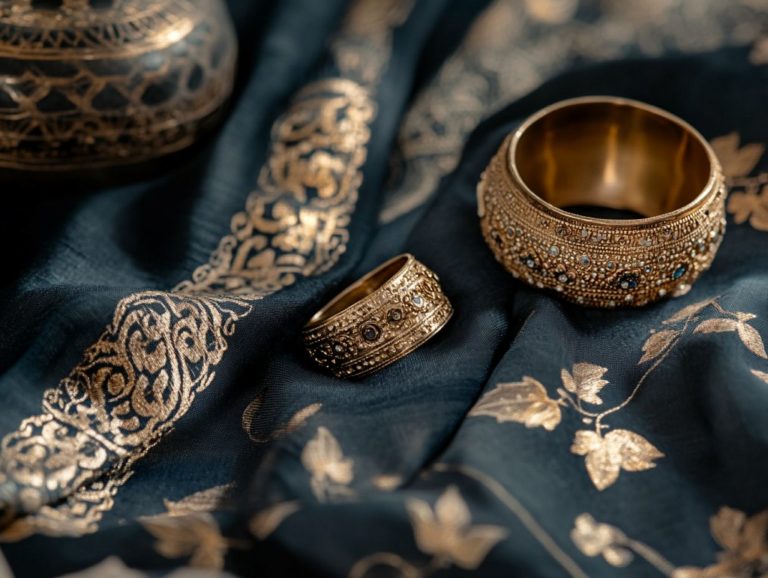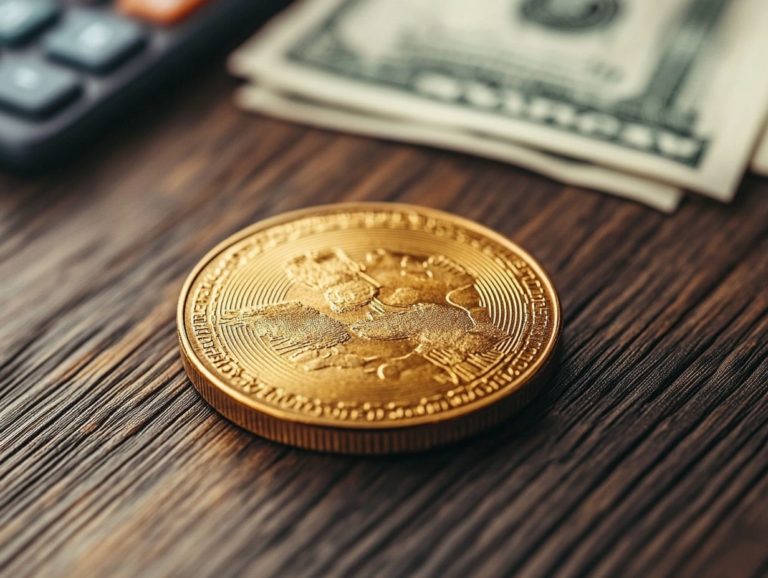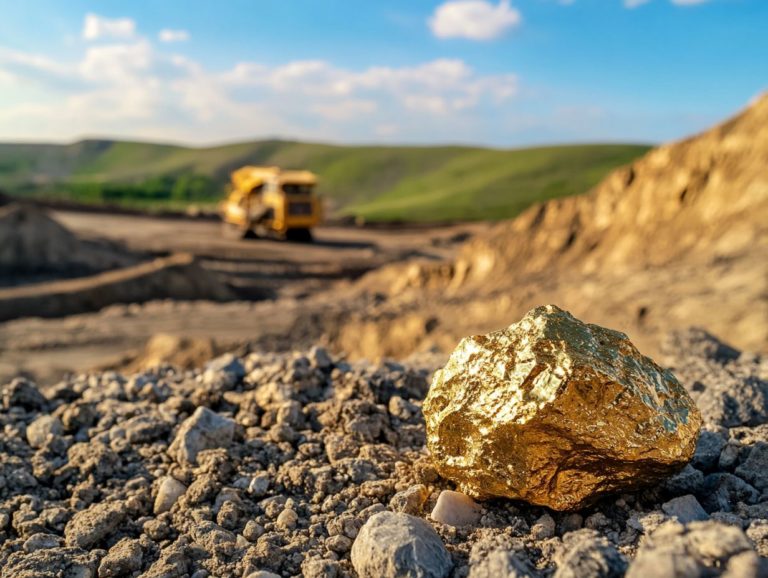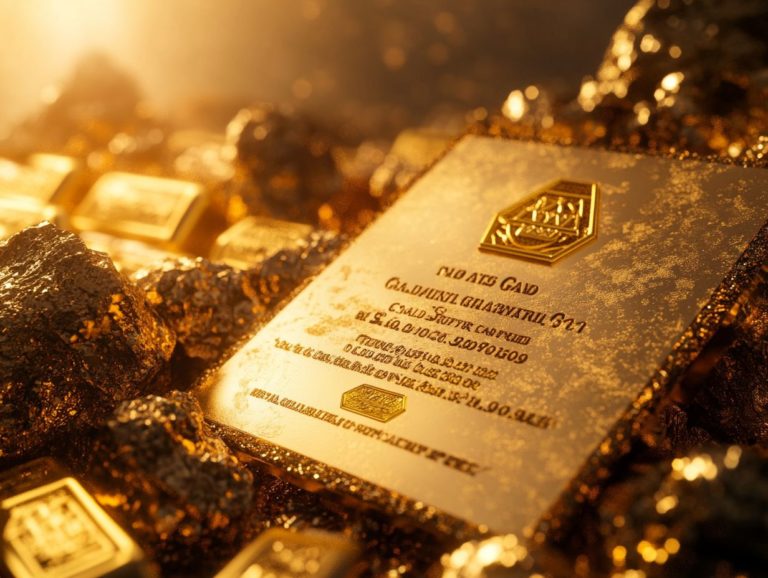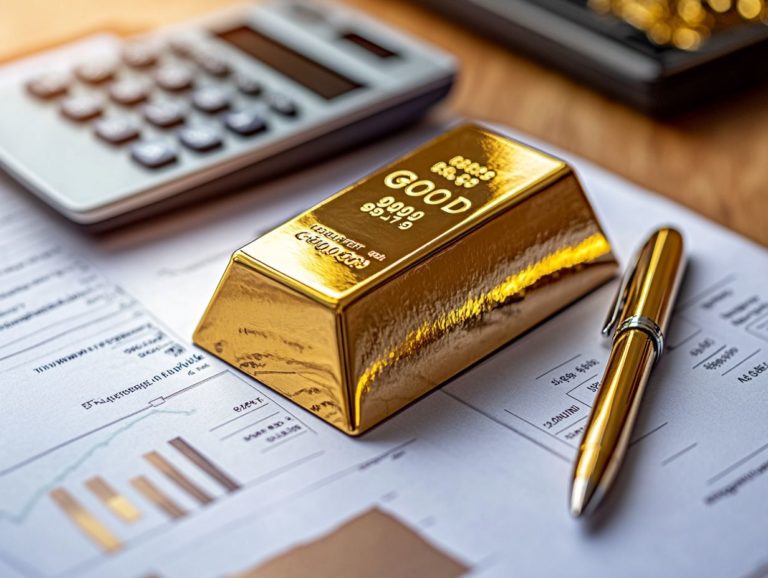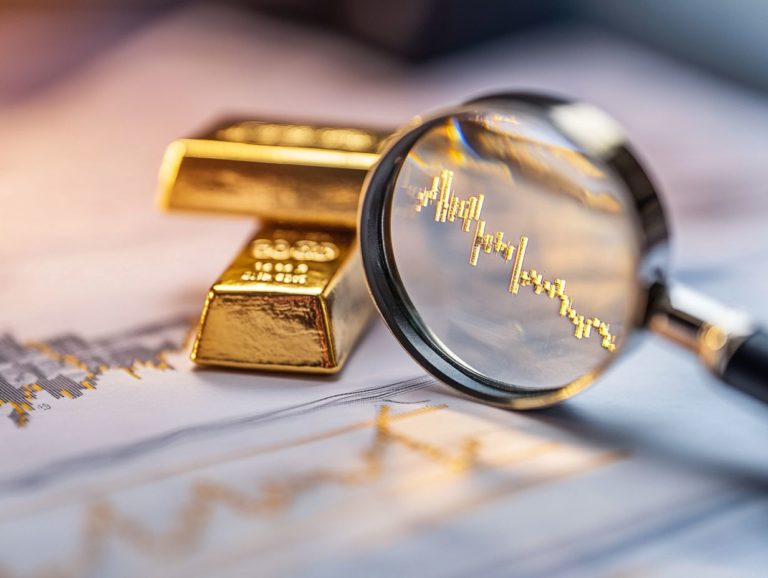What to Know Before Investing in Rare Coins?
Rare coins present a captivating fusion of history, artistry, and investment potential.
In a dynamic market where the allure of these collectibles is steadily increasing, understanding rare coin investing is crucial.
Key factors to consider include market demand, authenticity, and coin condition. You will uncover various types of rare coins, learn how to assess their value, and discover strategies to enhance your investment returns.
Whether you are just starting out or are a seasoned collector, valuable insights await you!
Contents
Key Takeaways:
- Research market demand and rarity when investing in rare coins to determine future value.
- Ensure authenticity and assess condition; a coin s value can significantly decrease if found to be inauthentic or in poor condition.
- Evaluate a rare coin’s value using grading systems and market trends. Stay informed and seek advice from reputable sources.
What are Rare Coins?
Rare coins are not just unique or limited pieces; they are valuable treasures, often steeped in historical significance and sought after by collectors and investors alike. These tangible assets belong to the fascinating world of numismatics, which is the study and collection of coins.
If you are considering investing in rare coins as an enhancement to your portfolio, understanding this intriguing field is essential.
Rare coins are fascinating because of the stories they tell. Each coin can be a glimpse into history, transforming collectibles into genuine artifacts.
For numismatists, uncovering a rare find or completing a coveted series can be immensely gratifying.
Smart investors see rare coins as a way to protect against inflation and market fluctuations, while also enjoying aesthetic beauty.
As the collector base grows, the demand for these distinctive pieces continues to soar, solidifying their importance as a strategic asset within a well-rounded investment portfolio.
Factors to Consider Before Investing
Before diving into rare coin investments, consider several critical factors. Pay attention to market trends, ensure the authenticity of the coins, and seek expertise from reputable coin dealers.
Craft effective investment strategies to grasp current market dynamics. This understanding empowers you to make informed choices and maximize your potential gains.
Market Demand and Rarity
Market demand plays a pivotal role in determining the value of rare coins. Rarity is closely linked to investment gains.
As a collector or investor, be vigilant about how inflated grades can skew a coin’s perceived value, which may stray from its true worth.
When a rare coin captures the attention of collectors, its price often skyrockets, fueled by market excitement and competition. This heightened interest can create a feedback loop that drives up prices, sometimes leading investors to overlook a coin s genuine attributes.
Assess the credibility of grading agencies. Inflated grades can mislead potential buyers, causing them to misjudge a coin’s true rarity and demand.
To navigate this landscape successfully, consider these strategies:
- Consult reputable experts.
- Utilize historical sales data.
- Examine the coin’s scarcity alongside its overall condition.
By taking these diligent steps, you can achieve a more accurate understanding of rarity and market dynamics, guiding you toward informed investment decisions.
Authenticity and Condition
Ensuring the authenticity and condition of rare coins is crucial for you as a collector or investor. It directly impacts their value and desirability in the marketplace. By utilizing grading terms established by reputable organizations like the Professional Coin Grading Service, you can make informed decisions about the condition of your coins.
This process boosts your confidence and fosters trust in the marketplace. Understanding different grading terms, such as Mint State (MS) the highest quality a coin can achieve Extremely Fine (EF), or Uncirculated (UNC), allows you to gauge the investment potential of your collection more effectively.
Each term conveys a distinct level of wear and quality, influencing both the coin’s attractiveness and its resale value. Engaging with professional grading services is essential in this ecosystem because they provide unbiased assessments and certification, empowering you to navigate the rare coin market with assurance and insight.
Types of Rare Coins
You will find many rare coins, each with unique traits that attract collectors and investors in the coin-collecting realm.
From iconic historic U.S. coins like the esteemed 1933 Double Eagle to contemporary gold bullion, understanding the different types of rare coins empowers you to curate a diverse portfolio of tangible assets.
Different Categories and Examples
Different categories of rare coins beckon you, from historic U.S. coins like the 1882-S Morgan dollar to modern collector favorites often on display at coin shows across the nation. The American Numismatic Association is instrumental in elevating this hobby, providing you with opportunities to connect with luminaries like J.P. Morgan and Wayne Gretzky, who have made remarkable contributions to the world of numismatics.
Within the enchanting realm of historic coins, pieces like the 1913 Liberty Head nickel captivate your imagination, thanks to their fascinating backstories and the intriguing circumstances surrounding their minting. Modern coins, including the exquisitely designed American Silver Eagles, attract newer collectors eager to invest in bullion that not only holds economic value but also possesses artistic merit.
Commemorative coins, such as those celebrating the 50th anniversary of the Apollo 11 moon landing, offer you the chance to own a tangible piece of history while honoring monumental events. This fusion of artistry and heritage enhances their appeal in the marketplace, as you seek out items that resonate both personally and historically.
How to Evaluate the Value of Rare Coins
Evaluating the value of rare coins requires you to grasp essential factors such as market demand, rarity, and the historical significance of each coin. Utilizing resources like the American Numismatic Association, along with insights from seasoned coin experts, can offer you invaluable guidance in determining fair market value.
Key Factors and Resources
Key factors in evaluating rare coins include their historical background, condition, and market availability. All of these significantly influence your potential investment gains. By utilizing reliable resources for ongoing market trends, you can make informed purchasing decisions that enhance your collection and financial portfolio.
Grading plays a crucial role in determining a coin s value. Coins that receive high grades tend to be more sought after and can command premium prices. The historical significance of a coin encompassing its origin, rarity, and any notable events associated with it adds to its allure in the market.
Demand can fluctuate over time, swayed by collectors interests and broader economic conditions. Therefore, it s essential for you to stay updated with professional sources and price indices. Regularly monitoring these factors will help you anticipate market shifts and seize optimal investment opportunities that align with your goals.
Tips for Investing in Rare Coins
Investing in rare coins is an exciting adventure that can yield fantastic rewards! Adopting effective strategies that resonate with both your collector’s spirit and the realities of the market is crucial.
Whether you choose to employ techniques like coin flipping or focus on long-term investment potential, a thoughtful and strategic approach is essential for success.
Strategies for Maximizing Returns
Maximizing returns on your rare coin investments requires sound strategies that consider current market trends and unique opportunities. With effective planning and thorough research, you can boost your investment gains significantly.
By diversifying your coin portfolio, you reduce risks and tap into various market segments. This approach increases your profitability potential.
Attending coin shows offers a golden opportunity to network with industry experts and gain valuable insights. Keep a keen eye on market fluctuations and emerging trends to adapt your investment tactics swiftly.
Embrace continuous learning through workshops, online resources, or chats with fellow collectors. This knowledge gives you the power to respond dynamically as the market evolves.
Frequently Asked Questions
What to Know Before Investing in Rare Coins?
Investing in rare coins can be lucrative, but you need to do your research first. Here are some common questions and answers to help you understand what to consider.
What are rare coins?
Rare coins have a limited supply and are highly sought after by collectors and investors. Their historic, cultural, or numismatic significance makes them valuable.
How do I know if a coin is rare?
Determining a coin’s rarity can be tricky. Consider factors like mintage, condition, and collector demand. Research and consulting with a reputable dealer is essential.
What are the risks of investing in rare coins?
Like any investment, rare coins come with risks. These include market fluctuations, counterfeit coins, and the possibility of not selling the coin at your desired price.
What are the benefits of investing in rare coins?
Rare coins offer several advantages. They provide portfolio diversification, act as a hedge against inflation, and can yield higher returns than traditional investments. Collecting rare coins is also a rewarding hobby.
How should I store my rare coins?
Proper storage is key to preserving your coins’ value. Store them in a cool, dry place, like a safe deposit box or a specialized container. Handle them carefully to avoid damage.
Where can I buy rare coins?
You can purchase rare coins from various sources, including dealers, auctions, and online marketplaces. Always buy from reputable dealers, and research the coins thoroughly before buying.










